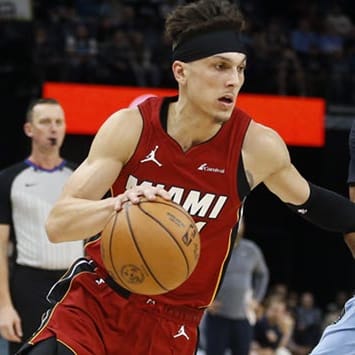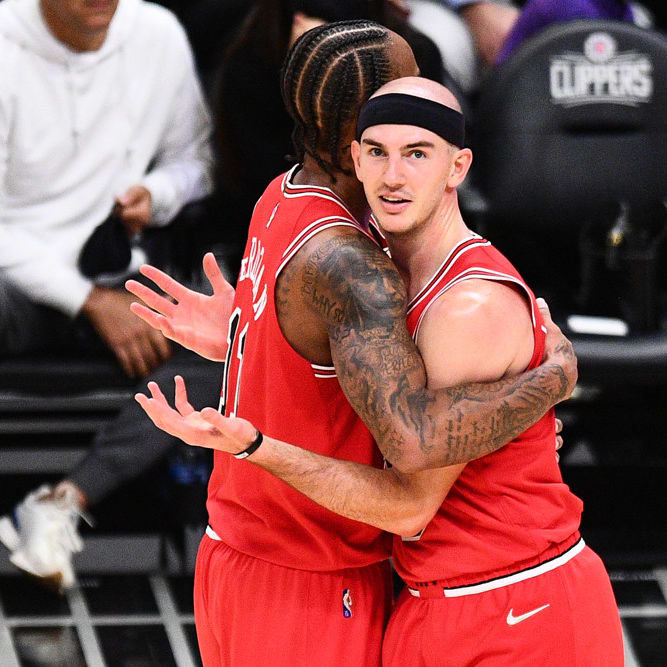This article is part of our NBA Draft Kit series.
Separating players into tiers is a popular method of draft prep, and it de-emphasizes the idea that you must draft a player because his projections come out slightly more favorably than those of another player. Often, the difference between a player ranked, say, 30th, and a player ranked 45th is smaller than you think.
Tiers help account for those discrepancies by grouping together players with similar risk/reward profiles, empowering the fantasy manager to choose for themselves. Tiers are also a great way to stay organized and disciplined while drafting. The default queue is a good place to start, but tiers add a personal touch and allow for more precise roster management as a draft plays out.
Some notes on methodology:
- Tiers take into account players with top-120 upside. Essentially, players that could reasonably come off the board in a standard draft.
- Players within tiers are not ranked in a specific order. Ideally, everyone in a tier has an argument to be taken over anyone else in that tier.
- Plenty of players are multi-position eligible, but to avoid confusion and redundancy, each player only appears at what we assume to be their primary position
- Tiers are based on 8-category, rotisserie scoring
Tier 1: Possible No. 1 Overall Picks
 Anthony Davis, Los Angeles Lakers
Anthony Davis, Los Angeles Lakers
Davis has center eligibility in most leagues, but he played most of his minutes at power forward last season, and that'll likely be the case again with Marc Gasol set to replace the JaVale McGee/Dwight
Separating players into tiers is a popular method of draft prep, and it de-emphasizes the idea that you must draft a player because his projections come out slightly more favorably than those of another player. Often, the difference between a player ranked, say, 30th, and a player ranked 45th is smaller than you think.
Tiers help account for those discrepancies by grouping together players with similar risk/reward profiles, empowering the fantasy manager to choose for themselves. Tiers are also a great way to stay organized and disciplined while drafting. The default queue is a good place to start, but tiers add a personal touch and allow for more precise roster management as a draft plays out.
Some notes on methodology:
- Tiers take into account players with top-120 upside. Essentially, players that could reasonably come off the board in a standard draft.
- Players within tiers are not ranked in a specific order. Ideally, everyone in a tier has an argument to be taken over anyone else in that tier.
- Plenty of players are multi-position eligible, but to avoid confusion and redundancy, each player only appears at what we assume to be their primary position
- Tiers are based on 8-category, rotisserie scoring
Tier 1: Possible No. 1 Overall Picks
 Anthony Davis, Los Angeles Lakers
Anthony Davis, Los Angeles Lakers
Davis has center eligibility in most leagues, but he played most of his minutes at power forward last season, and that'll likely be the case again with Marc Gasol set to replace the JaVale McGee/Dwight Howard combo. While Davis' rebounding numbers declined last season, he turned in a vintage season in every other category, leading the league in combined blocks and steals, while shooting a career-best 84.6 percent at the line. Over the last four seasons, Davis has finished fourth, first, second and second in per-game value.
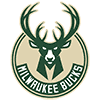 Giannis Antetokounmpo, Milwaukee Bucks
Giannis Antetokounmpo, Milwaukee Bucks
Antetokounmpo is one of the most dominant players in fantasy basketball, save for one fatal flaw: free throw shooting. After floating steadily in the mid-70-percent range over the last few years, Antetokounmpo hit just 63.3 percent of his attempts last season. Considering he took a career-high 10.0 free throws per game, that did a number on his fantasy value, sending him tumbling to 13th in per-game value -- his lowest finish since 2015-16. Antetokounmpo should again put up monster counting stats this season, but he'll be met with a bit more skepticism until he proves he can return to being at least an average free throw shooter.
Tier 2: Kevin Durant
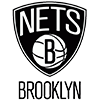 Kevin Durant, Brooklyn Nets
Kevin Durant, Brooklyn Nets
Durant is clearly better than the players in Tier 3, and while he's on the same level as Antetokounmpo and Davis, there's simply too much risk with a 32-year-old coming off of an Achilles injury. By all accounts, Durant has looked like his old self, but the Nets will likely be cautious with him -- in a condensed season, that could mean significant missed time. Even so, Durant is one of the most consistent fantasy players of all-time. After finishing 60th in per-game value as a rookie, he hasn't dropped out of the top-eight since. Some regression is possible, but even if Durant comes back at 85 or 90 percent, he's still an elite fantasy value.
Tier 3: Elite Fantasy Stars
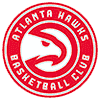 John Collins, Atlanta Hawks
John Collins, Atlanta Hawks
A suspension caused Collins to miss a chunk of time early last season, but on a per-game basis he finished as a first-round fantasy value. A highly efficient big man who shoots threes and blocks shots, Collins is a fantasy manager's dream. The only question is how much -- if at all -- the Hawks' revamped roster will impede his progress.
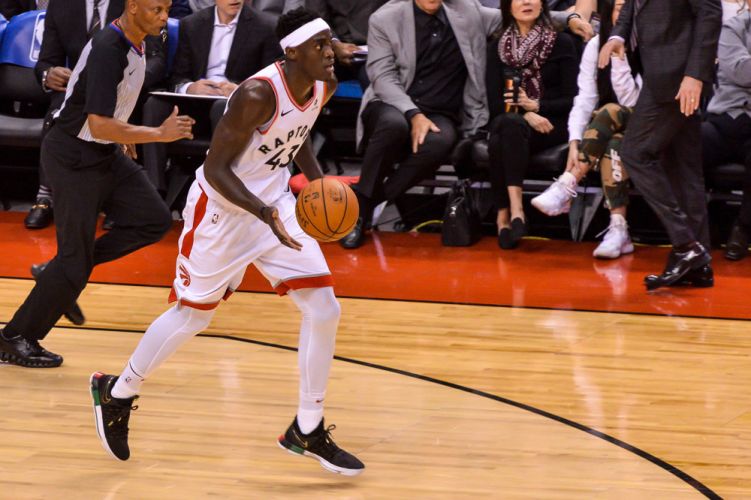
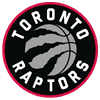 Pascal Siakam, Toronto Raptors
Pascal Siakam, Toronto Raptors
Siakam's struggles in the Orlando bubble overshadowed the fact that he was a top-35 fantasy player during the regular season. His ceiling may not be much higher, but Siakam is a high-floor player who, outside of an 11-game absence last season, has been extremely durable.
 Domantas Sabonis, Indiana Pacers
Domantas Sabonis, Indiana Pacers
One of last season's top breakouts, Sabonis jumped from 89th to 42nd in per-game fantasy value compared to 2018-19. While he doesn't block shots or shoot threes, Sabonis is an efficient scorer and a decent free throw shooter for a big man. His 18.5 points, 12.4 rebounds and 5.0 assists per game were all career-highs.
Tier 4: High-Level Starters
 Draymond Green, Golden State Warriors
Draymond Green, Golden State Warriors
There were times last season when Green looked completely washed, but he gets the benefit out of the doubt as the lone healthy holdover in a lost season for the Warriors. Even with Stephen Curry back, Green carries some risk. He's not the same defender he was in his prime, and his shooting numbers have fallen off of a cliff since 2015-16, which in hindsight looks like a massive anomaly. But Green remains a solid steals/blocks producer (2.5 per game over the last three seasons), and his out-of-position assists are still ultra valuable.
 Christian Wood, Houston Rockets
Christian Wood, Houston Rockets
Over his final 22 games last season, Wood averaged 19.7 points, 8.1 rebounds, 1.4 assists, 0.9 steals and 0.9 blocks with a 56/40/77 shooting line. Fitting in alongside James Harden and John Wall won't be an easy task, but Wood is on the short list of players who could break out in a big way in 2020-21.
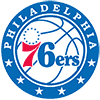 Tobias Harris, Philadelphia 76ers
Tobias Harris, Philadelphia 76ers
No one is ever excited to draft Tobias Harris, but he's one of the league's steadiest fantasy players. Harris almost never misses time, and he's finished between 42nd and 76th in per-game value in each of the last six years, despite playing for four different teams during that span.
 Jaren Jackson, Memphis Grizzlies
Jaren Jackson, Memphis Grizzlies
Jackson finished as the 65th-ranked player last season, due in large part to his unique combination of scoring (17.4 PPG), high-volume three-point shooting (2.5 3PM/G) and shot-blocking (1.6 BPG). The downside is Jackson is a bizarrely poor rebounder for his size, and he doesn't offer much in terms of passing (1.4 APG). On top of that, he's missed 15-plus games in each of his first two seasons, and he'll begin this season sidelined with a knee injury.
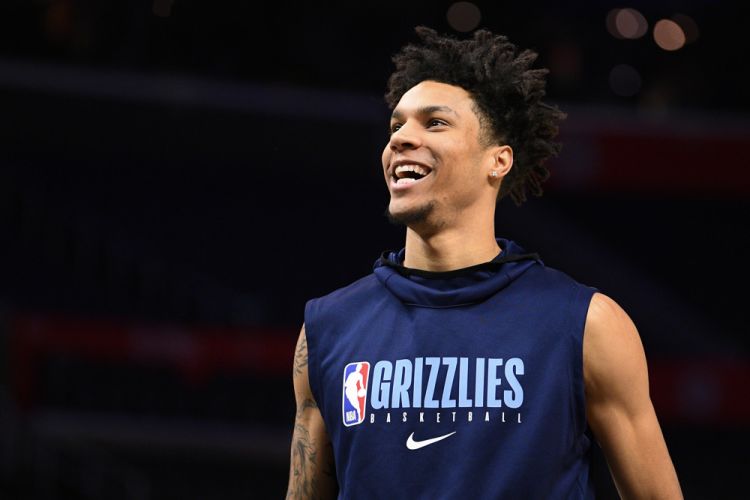
 Brandon Clarke, Memphis Grizzlies
Brandon Clarke, Memphis Grizzlies
One of only three rookies to finish inside the top-120 last season, Clarke's all-around production from his days at Gonzaga translated well to the NBA. More three-point volume would be nice, but Clarke is a safe pick who should see a bump in value for as long as Jackson remains sidelined.
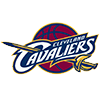 Kevin Love, Cleveland Cavaliers
Kevin Love, Cleveland Cavaliers
2019-20 was a nice bounceback year for Love, who played in just 22 games the previous season. While he's stuck on a hapless franchise, Love is still a nightly double-double threat who bombs away from three and shoots close to 90 percent at the line. Love's 3.2 assists per game last season were his most since 2013-14 -- his final year in Minnesota.
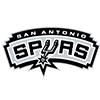 LaMarcus Aldridge, San Antonio Spurs
LaMarcus Aldridge, San Antonio Spurs
At some point, regression is going to come for the 35-year-old, but he's been able to stave it off thus far. In five seasons with the Spurs, Aldridge has finished 41st, 63rd, 29th, 27th and 41st in per-game value -- a remarkably consistent run. Aldridge added the three-point shot to his repertoire last season (1.2 3PM/G), and he registered a career-high 1.6 blocks per game.
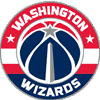 Davis Bertans, Washington Wizards
Davis Bertans, Washington Wizards
Bertains is basically a points/threes specialist, but he's at the top of his field. His 3.7 made threes per game last season ranked fourth in the league behind only James Harden, Damian Lillard and Buddy Hield.
Tier 5: Solid Starters
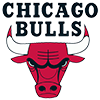 Lauri Markkanen, Chicago Bulls
Lauri Markkanen, Chicago Bulls
Injuries have befallen Markkanen of late, but with a new regime in place, there's hope that he'll look more like the inside-outside threat he was in his first two NBA seasons.
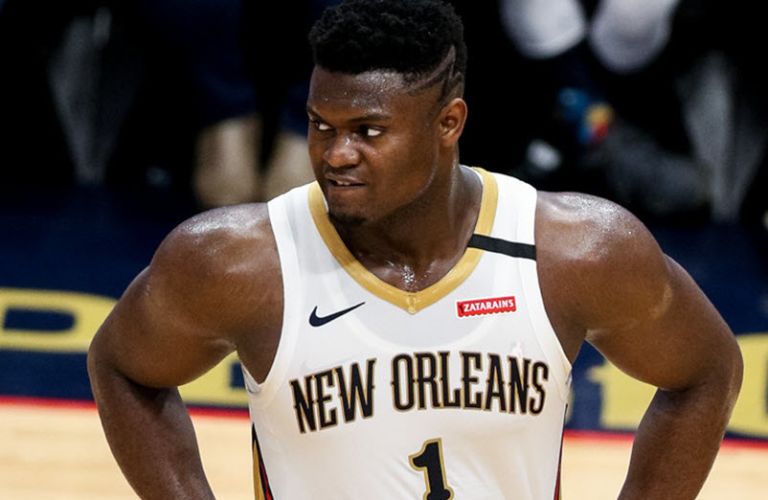
 Zion Williamson, New Orleans Pelicans
Zion Williamson, New Orleans Pelicans
No player has a larger disconnect between his on-court value and his fantasy value. While Williamson played in only 24 games last season, he was a scoring machine (22.5 PPG) who finished at an elite rate and worked his way to the line more than seven times per game. Neither of those things should change going forward, but Williamson provided very little in terms of assists, steals, blocks and three-pointers. And despite getting to the line at a ridiculous rate, Williamson converted only 64 percent of his attempts. Eventually, Williamson should improve in all of those areas, but he enters 2020-21 with some major questions to answer. Chief among them: Can he stay healthy?
 Blake Griffin, Detroit Pistons
Blake Griffin, Detroit Pistons
At his peak, Griffin was one of the 20 best fantasy assets in the league. But those days are long gone. While a healthy Griffin is still an All-Star-caliber player, he continues to be hampered by knee issues that limited him to just 18 games in 2019-20. At some point, Griffin becomes worth the risk, but he's not a player who should be aggressively targeted in drafts.
 Jerami Grant, Detroit Pistons
Jerami Grant, Detroit Pistons
After coming over from Denver in the offseason, Grant will go from solid role player to perhaps the Pistons' second option. That's a lot to ask for a player who makes his living on hustle plays, cuts to the rim and spot-up threes. But if the Pistons are prepared to hand Grant 30-plus minutes and a major role, his fantasy value will rise accordingly.
 Julius Randle, New York Knicks
Julius Randle, New York Knicks
The NBA's preeminent good stats/bad team guy, Randle finished inside the top-100 last season for the fourth straight year. He'll remain a good source of points and rebounds, but Randle could cede some usage to rookie Obi Toppin.
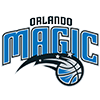 Aaron Gordon, Orlando Magic
Aaron Gordon, Orlando Magic
While he's made a habit of letting fantasy managers down, Gordon's potential remains intriguing. Is this the year he finally takes the next step? Realistically probably not. But don't let that stop you from talking yourself into it.
Tier 6: Late-Round Targets
Montrezl Harrell, Los Angeles Lakers
Danilo Gallinari, Atlanta Hawks
PJ Washington, Charlotte Hornets
Marvin Bagley, Sacramento Kings
Dario Saric, Phoenix Suns
Rui Hachimura, Washington Wizards
Harrison Barnes, Sacramento Kings
Rudy Gay, San Antonio Spurs
Marcus Morris, Los Angeles Clippers
Kyle Kuzma, Los Angeles Lakers
Dorian Finney-Smith, Dallas Mavericks
Cameron Johnson, Phoenix Suns








